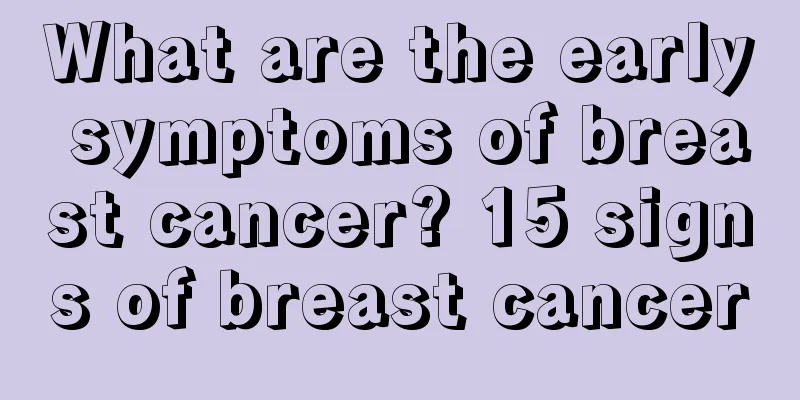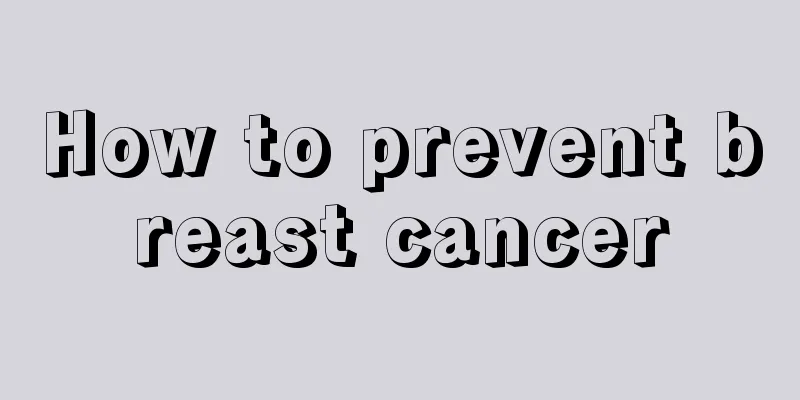I have small itchy bumps on my body

|
If you have pimples on your body and they are very itchy, you may have eczema, which is a very common skin disease. You can take some medicine to treat rheumatism or allergies. During the treatment, pay attention to diet adjustment and eat less raw, spicy and irritating food. Keep exercising and stay happy. Excessive stress can also trigger eczema flare-ups. Let’s take a look at the clinical manifestations and treatment methods of eczema. Clinical manifestations 1. According to the manifestation of skin lesions, it is divided into three stages: acute, subacute and chronic. (1) Acute eczema lesions initially appear as numerous densely packed millet-sized papules, papulovesicles or small blisters with a flushed base that gradually merge into patches. Due to scratching, the tops of the papules, papulovesicles or blisters may be scratched to reveal obvious punctate exudation and small erosive surfaces with unclear edges. If secondary infection occurs, the inflammation will be more obvious and may form pustules, pus scabs, folliculitis, furuncles, etc. Conscious severe itching. It often occurs on the head, face, behind the ears, distal limbs, scrotum, and perianal area, and is often distributed symmetrically. (2) Subacute eczema After the inflammation of acute eczema is alleviated, the skin lesions are mainly small papules, scabs and scales, with only a small amount of papulovesicles and erosions. Still have severe itching. (3) Chronic eczema often turns into chronic eczema due to repeated attacks of acute or subacute eczema. It may also start as chronic eczema. The symptoms include thickening and infiltration of the skin in the affected area, brown-red or pigmentation, rough surface, scaling, or scabs due to scratching. Conscious itching. It is commonly found in the calves, hands, feet, elbows, popliteal fossa, vulva, and anus. The course of the disease is uncertain, prone to relapse, and difficult to heal. 2. According to the scope of skin lesions, it is divided into two categories: localized eczema and generalized eczema. (1) Localized eczema occurs only in specific parts of the body and can be named according to the part of the body, such as hand eczema, vulvar eczema, scrotal eczema, ear eczema, breast eczema, perianal eczema, and calf eczema. (2) Generalized eczema has multiple lesions that spread or scatter to multiple parts of the body. Such as nummular eczema, autosensitive eczema, and seborrheic eczema treat The causes of eczema are complex, and it is easy to recur even after improvement through treatment, making it difficult to cure. Because the clinical morphology and location are unique, the medication varies from person to person. 1. General prevention and control principles Look for possible triggers, such as work environment, living habits, diet, hobbies, thoughts and emotions, as well as the presence or absence of chronic lesions and internal organ diseases. 2. Internal therapy Choose antihistamines to relieve itching, and use two together or alternately if necessary. Generalized eczema can be treated with oral or injected corticosteroids, but they should not be used for a long time. 3. Topical therapy Choose appropriate dosage form and medicine according to the condition of skin lesions. For acute eczema, local washing and wet compresses with normal saline, 3% boric acid or 1:2000-1:10000 potassium permanganate solution, and calamine lotion for astringency and protection. Subacute and chronic eczema should be treated with appropriate glucocorticoid creams, tar preparations or immunomodulators, such as tacrolimus ointment and pimecrolimus ointment. Add antibiotic preparations for secondary infection. prevention 1. Avoid possible triggering factors. 2. Avoid all kinds of external stimulation, such as hot water washing, excessive scratching, washing and contact with potentially sensitive substances such as fur preparations. Avoid contact with products containing chemical ingredients, such as soap, laundry detergent, and dishwashing liquid. 3. Avoid foods that may cause allergies and irritation, such as chili peppers, strong tea, coffee, and alcohol. 4. Use the medicine under the guidance of a professional physician and avoid using it indiscriminately. [1] |
<<: How to remove musty smell at home
>>: There are so many pimples in my hair
Recommend
Symptoms of blocked arm meridians
In life, many people will encounter the problem o...
How to avoid insomnia after exercise
I believe that many people have the habit of exer...
Do I need to straighten the top when doing an inward curl?
In life, many people particularly like the inward...
What are the dangers of getting ovarian cancer
What are the dangers of ovarian cancer? The conse...
What vitamins do men lack that make them more susceptible to prostate cancer? Which vitamins can prevent prostate cancer?
Prostate cancer is a malignant disease that serio...
Detailed explanation of the cleansing enema operation process, what preparations are needed?
Cleansing enema is a treatment for intestinal inf...
What are the benefits of soaking your feet in ginger slices regularly
Soaking your feet is a lifestyle habit that has a...
5 health care tips for bladder cancer patients
Bladder cancer is a killer that destroys human he...
The buttocks are sweaty and painful in summer
When summer comes, the air outside is hot. Couple...
What's the matter with the raised veins on the palms
Blue veins are very normal for many people, becau...
Eyelids are very dry, peeling and wrinkled
When people have any symptoms, they will manifest...
Symptoms before death from advanced esophageal cancer
1. Bleeding: When cancerous tissue necroses, rupt...
Why does vinegar-soaked garlic turn green?
Life always brings us many surprises, and the sam...
What are the effective drugs for breast cancer
After surgical treatment of breast cancer, it is ...
Nursing considerations for hamartoma
It should be said that the care of the disease is...









